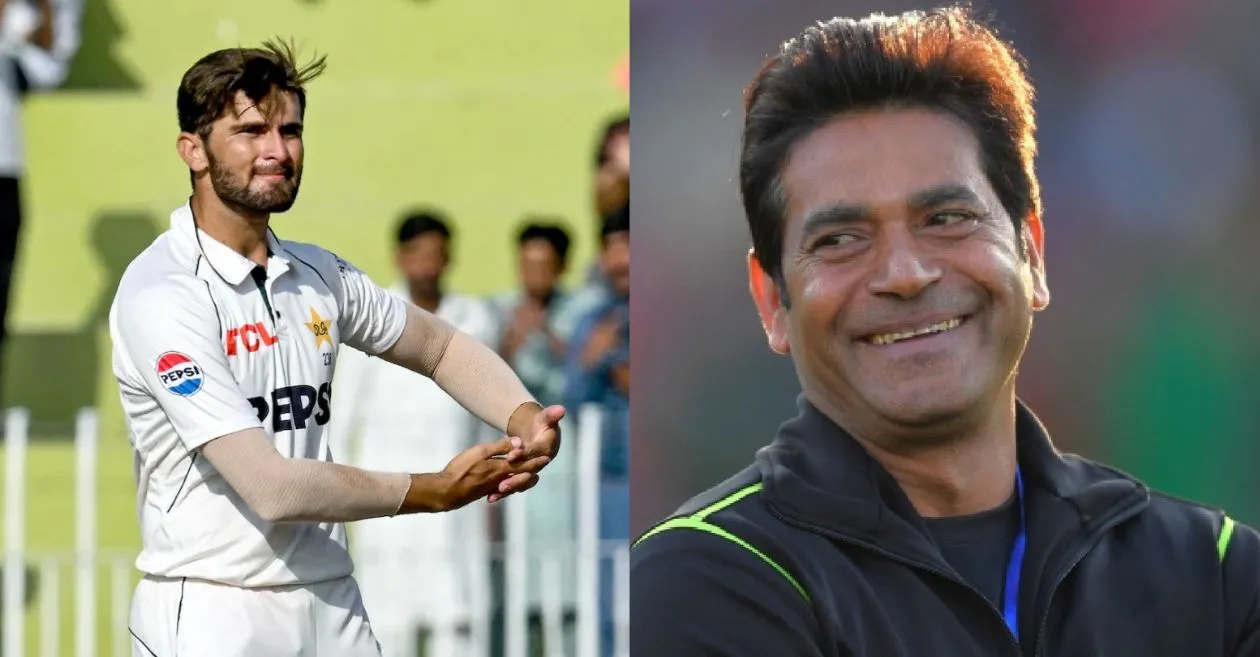Table of Contents
The Pakistan Cricket Board (PCB) has recently announced the squads for the upcoming tour of South Africa, and the notable absence of fast bowler Shaheen Shah Afridi from the Test squad has raised eyebrows across the cricketing community. While Afridi has been included in the ODI and T20I formats, his exclusion from the longest format has left fans and analysts questioning the rationale behind this decision.
The context of exclusion explained by Aaqib Javed
Afridi has been a cornerstone of Pakistan‘s bowling attack for several years, consistently delivering exceptional performances. His absence from such a crucial series against South Africa, known for their challenging conditions, is surprising. During the announcement, Aaqib Javed, a member of the selection committee and interim white-ball coach, explained that this decision was strategic, aimed at preserving Afridi’s fitness for the ICC Champions Trophy 2025. The selectors are prioritizing consistency in the ODI format as they prepare for this prestigious tournament.
“Shaheen Shah Afridi’s exclusion from the Test squad is a strategic decision to ensure he remains physically and mentally fresh for the ICC Champions Trophy 2025. Similarly, Fakhar Zaman was not considered as he is yet to regain form and match fitness. Our aim is to maintain consistency in ODI selections as part of our ICC Champions Trophy 2025 preparations, while also giving emerging talent opportunities in T20Is alongside experienced players. For Tests, we have focused on assembling a squad that can adapt to challenging conditions and consistently compete at the highest level,” Javed stated in a press release by PCB.
Also READ: Pakistan announces T20I, ODI and Test squads for South Africa tour; no place for Shaheen Afridi in the longest format
Fitness management: A double-edged sword
The reasoning behind Afridi’s omission hinges on fitness management—a strategy that has been met with skepticism. Critics point out that this same justification was used when he was dropped during the home series against England. If maintaining fitness is indeed the priority, then selecting him for T20Is raises further questions. The next T20 World Cup is still two years away, which makes his inclusion in that format seem contradictory to the management’s claims of needing to rest him.
In Afridi’s absence, Mir Hamza has been included in the Test squad as a left-arm seamer, suggesting a deliberate attempt by selectors to explore new options. This move may indicate that they are looking to build a robust pace attack capable of adapting to South African conditions. Notably, before his exclusion, Afridi had struggled to find wickets in Tests, capturing only 12 wickets in his last five matches—six of which came in a single game. This performance could have influenced the selectors’ decision.
The future of Shaheen Afridi
The question on everyone’s mind remains: what does this mean for Afridi’s future in Test cricket? His record speaks volumes; he has been instrumental in Pakistan’s bowling lineup. However, with increasing scrutiny on his fitness and performance levels, it appears that both he and the management are at a crossroads. The PCB’s strategy might be to ensure that Afridi remains at peak performance for major tournaments rather than risk injury or burnout during bilateral series.
The PCB’s decision to exclude Afridi from the Test squad for South Africa is undoubtedly a calculated risk. While it aims to safeguard one of Pakistan’s premier bowlers for future challenges, it also opens up discussions about player management and selection strategies within the team framework.
